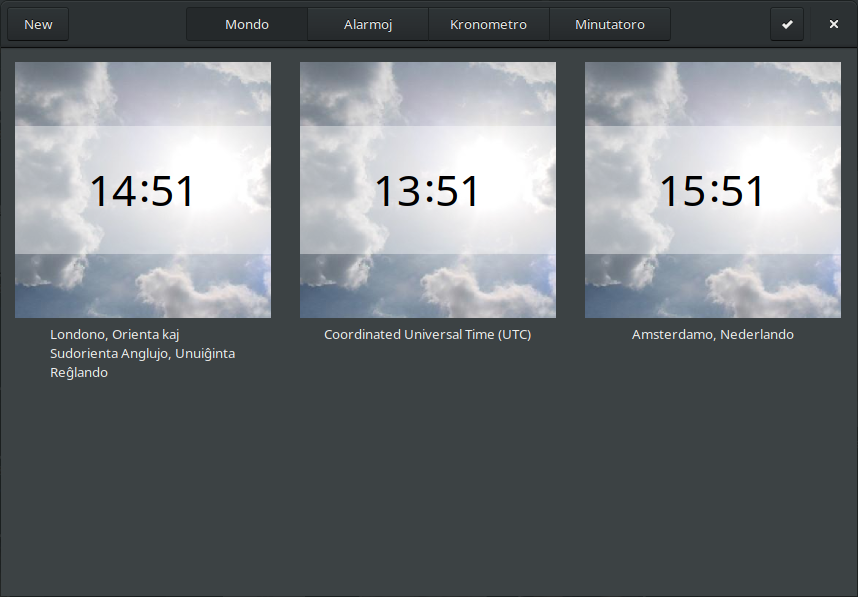We will meet at three o’ clock GMT, the first of May. [sic]
This is a subject on which I am extremely pigheaded. Often, when I am planning an online meeting with people who live in other timezones, they wish to choose a time and date using the GMT (Greenwich Mean Time) timezone. And often, that causes misunderstandings. The cause behind the misunderstanding is normally daylight saving time (henceforth called summer time). When one uses GMT during the summer to determine a time, there is a problem: Does “GMT” mean the current time in England, or does it mean the “normal” winter time in England?
Usually people (incorrectly) interpret that “GMT” always means the current English time, even in summer. Fortunately, if everyone interprets it this way, this ordinarily is not a problem. When it is summer in England, it is also summer in the Netherlands, so the difference between the two timezones remains the same—the Dutch time is always an hour ahead of the English. It does not matter if one calculates this using the summer time (GMT+1 and GMT+2) or regular winter time (GMT+0 and GMT+1). When it is three o’ clock in England, it is always four o’ clock in the Netherlands, so we can meet at the right time.
However, when people do not understand “GMT” to mean the same thing, they will not meet at the same time. It is even possible that summer time begins in one place before it has begun in the other. In the United States, summer time begins on the second sunday of March, while in England, it begins on the last sunday. In that case, even if you agree about the definition of “GMT”, you may not meet at the same time.
We will meet at two o’ clock UTC, the first of May.
So there is a solution: UTC (Universal Coordinated Time). UTC does not observe summer time, so it is always unambiguously identical to English winter time (GMT). Unfortunately, many people do not know UTC. Usually, I have to explain it as “the same as winter-GMT”. During winter, people will ask “so why don’t you say GMT like a normal human being?”, and in summer they will ask “why do you use such a complicated timezone?”
If I say that the meeting is at 2 o’ clock using UTC, people have to struggle with a timezone that only programmers really know. And unintuitively, the difference between the current time and UTC changes. During winter, the Netherlands are in UTC+1, but during summer in UTC+2. Therefore people have to always know the exact difference between UTC and their current timezone, if they wish to use UTC.
We will meet at four o’ clock Amsterdam time, the first of May.
So I propose a different solution: Amsterdam time. Or any city time, in truth. Choose a city, and just use its time. This solution is always unambiguous. One can always effortlessly calculate the local time. There are many websites that indicate the local time when given a city time. And if you do not want to use such an online tool, there are always tools such as the following:

It is a simple, elegant solution that is completely unambiguous, avoids summer time, and involves almost no arithemetic.